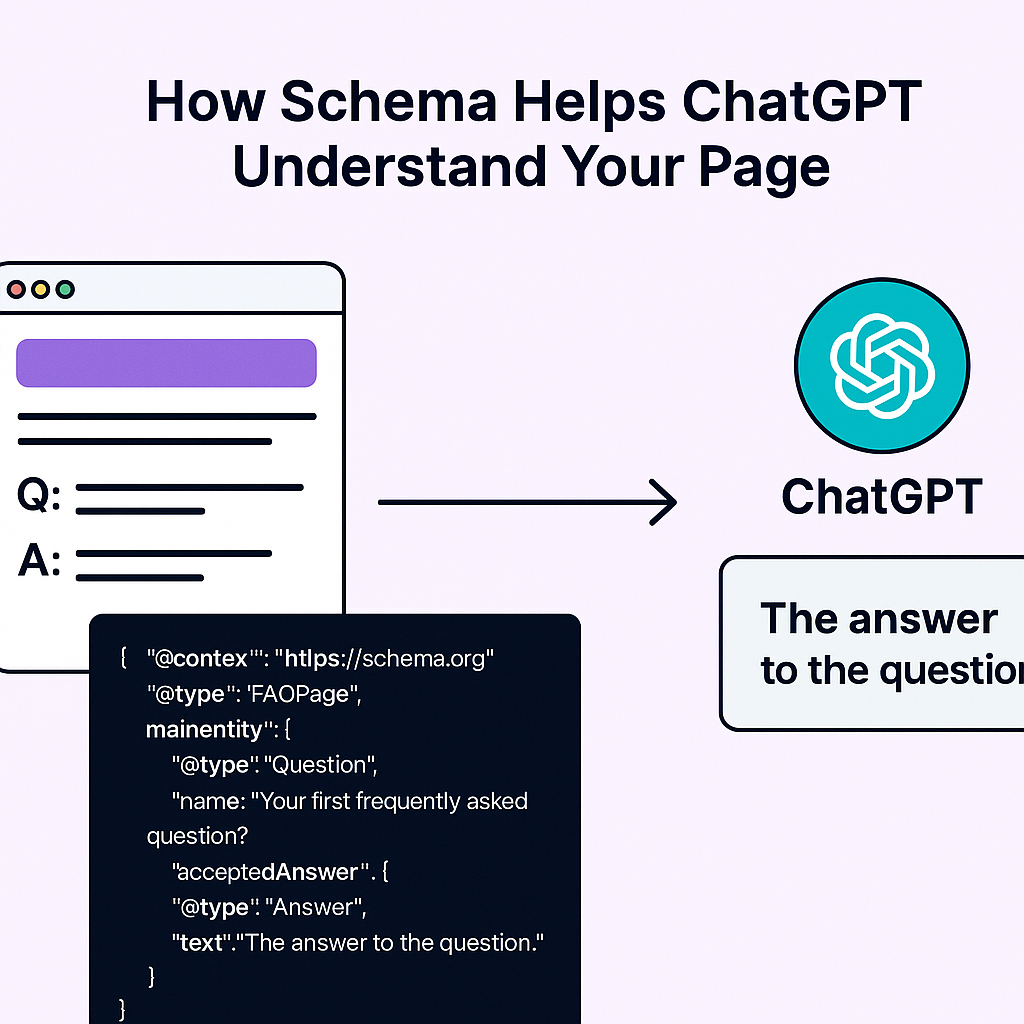All my SEO consulting clients are asking me, “How can we get clients from ChatGPT?” And for financial services, accounting firms, and B2B businesses, this is a legitimate question. Is there a ChatGPT SEO strategy that you’re firm should be launching immediately?
The short answer is: Yes. SEO for financial firms is evolving—don’t miss out.
More people are finding answers and making purchase decisions through tools like ChatGPT, Perplexity, and Google’s AI Overviews. These Large Language Models (LLMs) are becoming more accessible to the average person, but fear not, they’re not overtaking Google search... yet. They account for only around 1% of searches. That means if you’re running a business in the finance industry, you still have time to catch up and get found by ChatGPT.

Source: StatCounter Global Stats - AI Chatbot Market Share
But, how do you get started? You’ll need to create content that’s both discoverable by users and machines.
This is where your ChatGPT SEO strategy comes in. These five low-lift, high-impact moves will help boost your visibility in AI-powered search and increase your chances of being cited in AI responses. Let’s jump in.
1. Refresh Anything Older Than 12 Months
It’s tempting to focus on new content, but your old content may already have authority. It just needs an update.
According to recent data prepared by AirOps, their research showed that 95% of content cited by ChatGPT was updated in the past 10 months. Refreshing content can increase its likelihood of being cited by up to 4.8 times and is one of the simplest ways to modernize your AI SEO strategy.
What to do:
- Prioritize blog posts or landing pages that already get impressions (check Google Search Console).
- Update outdated stats, examples, and internal links.
- Make sure your CTAs reflect current service offerings.
- Look at the bounce rate on pages and update outdated information.
- Review your competitors and see how often they are mentioned for keywords you’re targeting.
Pro tip: Even if the body of your post is fine, updating the meta title, description, or adding internal links counts as a refresh.
2. Add or Update Schema on High-Intent URLs
How to get cited by ChatGPT? The answer may be in your schema—the code used on your website to communicate with AI and web crawlers.
If a page answers a common client question, it needs schema. Correct scheme markups are a key factor for a successful ChatGPT SEO strategy for being cited.

Structured data makes it easier for AI and search engines to understand the content's context, particularly in areas such as FAQs, service pages, and educational posts.
An added bonus? Properly marked-up pages (especially with FAQ schema) are 43% more likely to be cited in AI-generated results.
What to do:
- Review your website’s current schema markup on the CMS or through Schema Markup Validator.
- Add schema to service pages that include Q&As.
- Use tools like Schema Markup Generator or Yoast SEO to add JSON-LD markup.
- Test your pages using Google’s Rich Results Test.
- Talk to your web developer or SEO about how to make your schema more helpful for AI search.
3. Front-Load Evidence and Expertise
Lead with your best information. Don’t create a “big reveal” at the end of your content. Most of the time, people aren’t sticking around long enough to get ot the end of a blog post—and neither are the AI crawlers.

AI prioritizes early signals of authority and clarity. Focus your ChatGPT SEO Strategy on clearly written pages that start with context, data, or qualifications. These are more likely to be understood (and quoted in LLMs or AI overviews).
What to do:
- Begin pages with key credentials, stats, or proof points.
- State the point clearly in the first 1-2 sentences.
- Use bold or callouts to highlight key info upfront.
Examples in practice:
Before: “In today’s complex financial landscape, businesses have many questions about audits...”
After: “A 401(k) audit is required when your plan exceeds 100 participants. Here’s what that means for your business.”
4. Compress Paragraphs and Use Ordered Lists
Notice how this article has a clear list and pretty condensed paragraphs? Mirror this. Dense content loses readers. And AI.
Content planned with a ChatGPT SEO strategy in mind will be organized into clear sections, featuring concise paragraphs and bullet points. This technique will improve the likelihood that your content is featured in snippets—and cited by ChatGPT.
What to do:
- Use bullet points or numbered lists wherever possible.
- Keep paragraphs under 3 lines.
- Make your H2s and H3s reflect real search intent.
5. Map FAQs to Landing Pages, Not Just Blog Posts
Your blog can have great answers‚ but so can FAQs, and sometimes, FAQs are just easier for users and AI to quickly get the answer they need. Don’t hide your best answers in blogs.
Plus, ChatGPT and AI tend to pull answers from authoritative pages, and service pages that include clear FAQs are more likely to rank and be cited.
What to do:
- Add relevant FAQs to your core service pages.
- Use schema markup for those FAQs.
- Link blog posts to the corresponding landing pages.
Bonus: This helps reduce crawl depth and strengthens internal link equity, plus it’s an often-overlooked piece of AI search optimization that can boost your authority, which your competitors may not be doing yet.
How to Make Your ChatGPT SEO Strategy Work for Your Firm
Getting traffic and leads from SEO for ChatGPT isn’t about gaming the system. It’s about having a smart SEO strategy built on clarity, structure, and intent.
The good news? You don’t need to reinvent your entire content library. With the right updates—and an experienced SEO consultant whom you can trust—you can position your firm to get found more often in both traditional and AI-driven search.
The firms that will win in this next phase of search are the ones who act now, not later. If you’re not sure where to start, that’s where I can help.
Need help bringing in leads from Google and ChatGPT?
Ranking in AI-powered search tools like ChatGPT isn’t just for tech startups or enterprise brands. Financial and accounting firms that focus on clarity, structure, and keyword intent can absolutely show up where it matters, without overhauling everything.
If you’re looking for a smart, compliant SEO strategy that attracts the right clients and keeps you ahead of what’s next, we can help.

At Beth Chernes & Co., we specialize in helping financial and professional services firms grow through strategic financial services SEO that works, even as search evolves. I lead our consulting work directly, so when you partner with us, you’re getting high-touch expertise built around your business.
Ready to see how your website can bring in leads from tools like ChatGPT?






